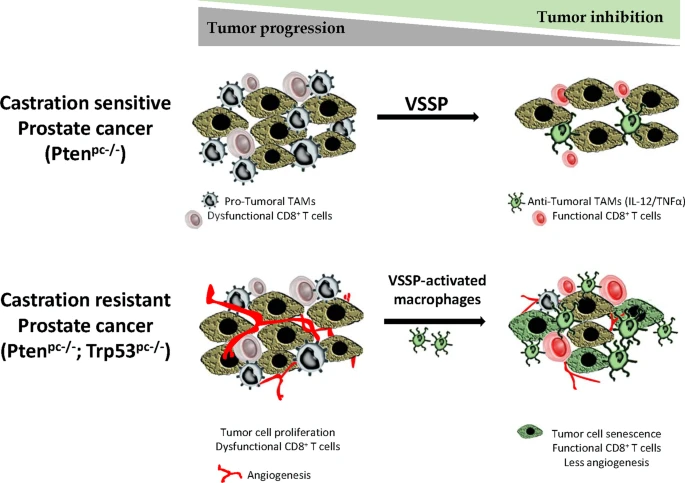
Preclinical model of advanced prostate cancer
DESCRIPTION
Androgen deprivation therapy (ADT) is a standard therapy for prostate cancer (PCa). Though disseminated disease is initially sensitive to ADT, an important fraction of the patients progresses to castration-resistant prostate cancer (CRPC).
For this reason, the identification of novel effective therapies for treating CRPC is needed. Immunotherapeutic strategies focused on macrophages as antitumor effectors, directly enhancing their tumoricidal potential at the tumor microenvironment or their adoptive transfer after ex vivo activation, have arisen as promising therapies in several cancer types.
Despite several approaches centered on the activation of tumor-associated macrophages (TAMs) in PCa are under investigation, to date there is no evidence of clinical benefit in patients. In addition, the evidence of the effectiveness of macrophage adoptive transfer on PCa is poor. Here we find that VSSP, an immunomodulator of the myeloid system, decreases TAMs and inhibits prostatic tumor growth when administered to castrated Pten-deficient prostate tumor-bearing mice.
In mice bearing castration-resistant Ptenpc−/−; Trp53pc−/− tumors, VSSP administration showed no effect. Nevertheless, adoptive transfer of macrophages activated ex vivo with VSSP inhibited Ptenpc−/−; Trp53pc−/− tumor growth through reduction of angiogenesis and tumor cell proliferation and induction of senescence.
Taken together, our results highlight the rationale of exploiting macrophage functional programming as a promising strategy for CRPC therapy, with particular emphasis on ex vivo-activated proinflammatory macrophage adoptive transfer.